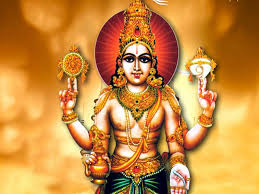Patna. The five-day lamp festival is starting with Dhanteras. Dhanteras has wide significance in religious scriptures. On the day of Dhanteras, Lord Dhanvantari, the father of Ayurveda, appeared after the churning of the ocean. Therefore, the festival of appearance of Lord Dhanvantari is celebrated as Dhanteras. The law of Ayurveda is the gift of Lord Dhanvantari. At the same time, Dhanteras has special significance in physical life also. The appearance day of Lord Dhanvantari, the originator of Ayurveda, is being celebrated with full devotion in the entire country including the capital Patna. Along with Havan puja, everyone is being wished for their good health. According to the beliefs of Sanatan Dharma, health is the greatest wealth. With this thinking and belief, today the entire Hindu society is celebrating the festival of Dhanteras.
Marketist culture has associated Dhanteras with ‘wealth’ instead of health.
Throwing light on the changed form of this festival, Patna’s famous religious leader Pandit Bhavnath Jha said that Dhanteras, which today has been arbitrarily associated with ‘money’ by the market culture, is actually linked to the story of Dhanvantarim and Samudra Manthan. On this day of Kartik Krishna Trayodashi, Dhanvantari Maharaj was born holding the pot of nectar in his hands. According to belief, drinking nectar gives immortality. Therefore, in Purana literature, Dhanvantari has been considered the god of health. He is considered the worshipable deity of physicians/doctors. Even Sushruta has said in each chapter of his book that whatever I am writing is an interpretation of what Dhanvantari said. Thus, Indian tradition has considered Dhanvantari as the god of physicians or the ‘Adi-Purush’.
Dhanvantari is revered as a deity
He said that the origin story of Dhanvantari is described in detail in Bhagwat-Mahapuran (up to 8.8.32-36). He has also been praised there, in which he has been revered as a deity. It is said that he was born as a part of Lord Vishnu, carrying a pitcher filled with nectar and wearing bracelets. An interesting story and method of worship related to Dhanvantari is mentioned in the ritual method written in the name of Rudrayamal Tantra. This is a worship method, in which if one worships a Kalash and takes bath with its water or milk on the day of Dhanvantari Trayodashi i.e. Dhanteras, one will remain healthy for a year. This is Rudrayam’s ‘Amritikaran Prayog’. It is described here that one can get rid of the disease by making the milk or water of the Kalash nectar and taking bath with it.
Bihar is the land of Amrit-Paan incident
According to the story of this puja, during the churning of the ocean, when Dhanvantari Maharaj appeared with the nectar pot, King Bali snatched it and ran towards his capital Baligram. It is said that present day Ballia was ancient Baligram. Thus, he started running along the banks of Ganga from present day Banka district, Mandar Parvat to Ballia. All the demons also went with him and on the way, Vishnu in the form of Mohini distributed nectar in Shalmali forest, a forest of Semal trees. Thus, Bihar is the land of Dhanvantari, churning of the ocean, drinking of nectar by the gods. Since this incident took place in the month of Kartik, the entire Kartik Ganga bath has special significance in Bihar. The famous Kalpavas of Kartik month takes place in Simaria of Begusarai district.
Galla Puja is mentioned in European documents
Thus, we see that the date of Kartik Krishna Trayodashi is going to provide health. Marketism linked it to money and manipulated it for its own benefit. Although 19th century European documents mention the worship of ‘Galla’ and ‘Tijauri’ by traders in Gujarat on this day, but in those days the worship was done after closing the sale. Today the worship of God has become secondary and trade has increased more. Vaidyas and Ayurvedic medicine manufacturing companies have been celebrating this day by worshiping their deity Dhanvantari.

